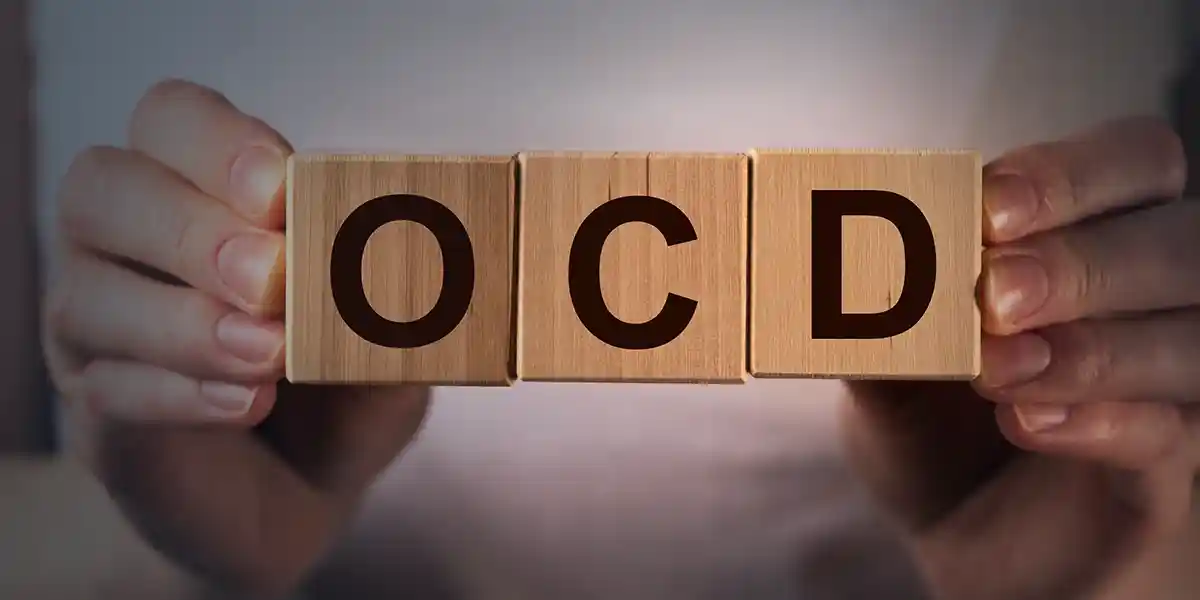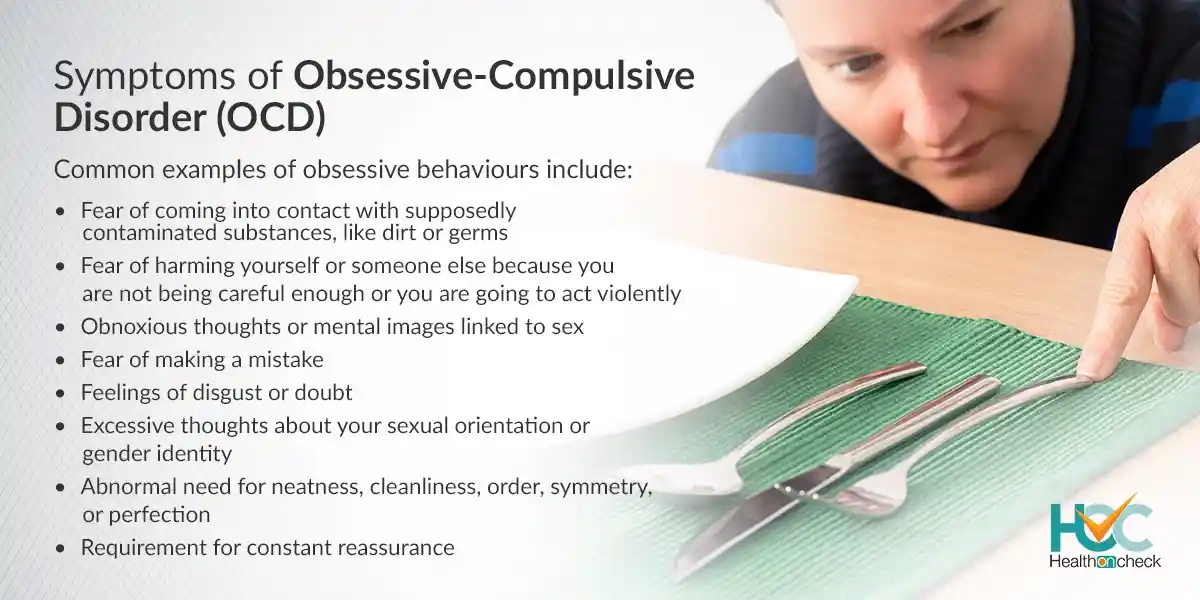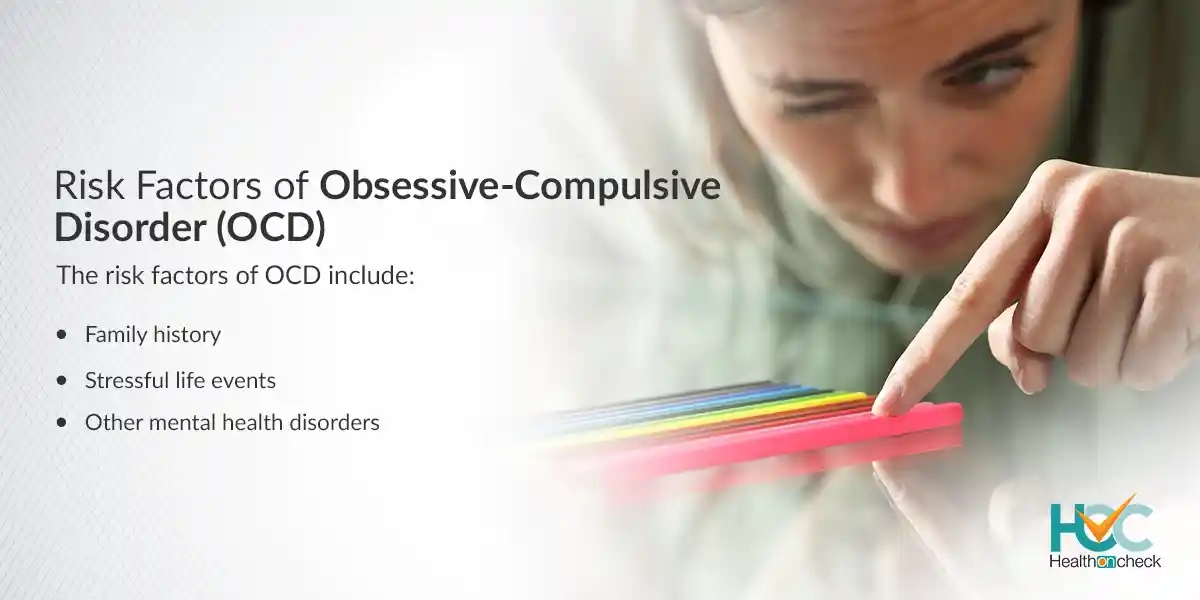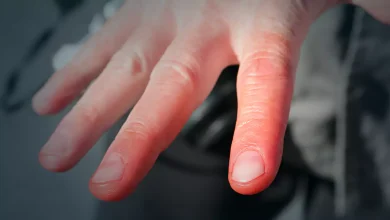What is Obsessive-Compulsive Disorder (OCD)?

Obsessive-compulsive disorder (OCD) is a mental disorder where you experience frequent unwanted thoughts and sensations (obsessions) causing you to do repetitive behaviors (compulsions). The repetitive behaviors might significantly impact your social standing, relationships, and daily tasks adversely. OCD is usually a chronic (life-long) condition, but symptoms can keep going and coming back.
Everyone once in a while experiences obsessions and compulsions. For instance, it is common to occasionally double-check the locks or stove but OCD is more extreme. It can take up hours of a person’s daily life and get in the way of normal life and tasks. Obsessions in OCD are unwanted and people with OCD don’t enjoy performing compulsive behaviors.
What are the Types of Obsessive-Compulsive Disorder (OCD)?
OCD comes in various types, but most cases fall into at least one of four general categories including:
Checking: Here one may keep on checking alarm systems, locks, ovens, or light switches over and over again or might think that they have a medical condition like pregnancy or schizophrenia.
Contamination: Here people are afraid of things that may be dirty or feel a compulsion to clean (commonly known as “obsessive cleanliness disorder”). During mental contamination, people might feel like they have been treated like dirt.
Symmetry and ordering: The need to have things lined up in a particular way.
Ruminations and intrusive thoughts: It includes an obsession with a line of thought some of which may be violent or disturbing.
What are the Symptoms of Obsessive-Compulsive Disorder (OCD)?
The prime symptoms of OCD include obsessions and compulsions interfering with normal activities. For instance, symptoms might prevent you from getting to work on time or you might find it difficult to get ready for bed in a reasonable amount of time.
You might be aware that these symptoms are problematic, but you are not able to stop them. Symptoms of OCD might come and go, ease over time, or worsen over time.
Obsessions in OCD
In OCD, obsessions are unwanted, intrusive thoughts or mental images causing intense anxiety. People with OCD are not able to control these thoughts. Most people with OCD realize that these thoughts are irrational or illogical but can’t stop them.
Common examples of obsessive behaviours include:

- Fear of coming into contact with supposedly contaminated substances, like dirt or germs.
- Fear of harming yourself or someone else because you are not being careful enough or you are going to act violently.
- Obnoxious thoughts or mental images linked to sex.
- Fear of making a mistake.
- Excessive concern with morality.
- Feelings of disgust or doubt.
- xcessive thoughts about your sexual orientation or gender identity.
- – Abnormal need for neatness, cleanliness, order, symmetry, or perfection.
- – Requirement for constant reassurance.
Compulsions in OCD
In OCD, compulsions are repetitive actions that make you feel like you need to do something to get rid of or easing of the obsessions.
People suffering from OCD usually don’t want to do these compulsive behaviours and don’t get pleasure from them but they feel like they have to do them or their anxiety will worsen. Compulsions might help temporarily, though but the obsessions return soon and trigger a return to the compulsions.
Compulsions are time-consuming and affect the other important activities of your life.
Examples of obsessive compulsions include:
- Arranging things in a certain way, like the items on your table.
- Frequently bathing, cleaning, or washing your hands.
- Collecting or accumulating things having no personal or financial value.
- Repeatedly checking things, like switches, locks, and doors.
- Frequently check that you are not causing someone harm.
- Repeatedly looking for reassurance.
- Rituals linked to numbers, including counting, doing an activity for a certain amount of time or preferring or excessively avoiding certain numbers.
- Chanting certain words or prayers while doing unrelated activities.
Compulsions might also include avoiding situations that might trigger obsessions like refusing to shake hands or touch things that other people touch a lot, such as doorknobs.
What are the Causes of Obsessive-Compulsive Disorder (OCD)?
The causes of OCD are not clear but researchers believe various factors contribute to its occurrence, including:
Genetics: According to studies, people with a family history of OCD are at a higher risk for developing OCD too. The risk heightens if the relative develops OCD as a child or teen.
Brain changes: Imaging studies have shown that there are differences in the frontal cortex and subcortical structures of the brain in people with OCD. OCD is also connected with other neurological conditions affecting similar areas of your brain, such as Parkinson’s disease, Tourette’s syndrome, and epilepsy.
PANDAS syndrome: PANDAS is the acronym for “paediatric autoimmune neuropsychiatric disorders associated with streptococcal infections.” It includes a group of conditions affecting children with strep infections, like strep throat or scarlet fever. OCD is one of these conditions.
Childhood trauma: According to some studies, there is a connection between childhood trauma, like abuse or neglect, with the development of OCD.
What are the Risk Factors of Obsessive-Compulsive Disorder (OCD)?
The risk factors of OCD include:

Family history: If you have parents or other family members with OCD then your risk of developing OCD also increases.
Stressful life events: Experiencing traumatic or stressful events increases the risk of developing OCD. This reaction might, for some reason, trigger the intrusive thoughts, rituals, and emotional distress characteristic of OCD.
Other mental health disorders: OCD might also be linked with other mental health disorders, like anxiety disorders, depression, or substance abuse.
What are the Complications of Obsessive-Compulsive Disorder (OCD)?
The complications of OCD might include:
- Excessive time wasted in ritualistic behaviours
- Health issues, including developing dermatitis from frequent hand-washing
- Problems in work, school, or social activities
- Failed relationships
- Overall poor quality of life
- Suicidal thoughts and behaviour
How Obsessive-Compulsive Disorder (OCD) is Diagnosed?
Obsessive-compulsive disorder (OCD) can be diagnosed through steps including:
Psychological evaluation: Here a psychologist or psychiatrist might discuss with you your thoughts, feelings, symptoms, and behaviour patterns to evaluate if you have obsessions or compulsive behaviours disturbing your quality of life. This might also include talking to your family or friends with your permission.
Physical exam: Your doctor may carry out a physical exam to rule out other conditions that might be causing your symptoms and to check for any related complications.
Diagnostic challenges: It can be difficult sometimes to diagnose OCD because symptoms might be similar to other mental disorders such as obsessive-compulsive personality disorder, anxiety, depression, or schizophrenia. It’s also quite possible to have both OCD and another mental health disorder.
What are the Treatment Options Available for Obsessive-Compulsive Disorder (OCD)?
Psychotherapy (talk therapy) and medication are the most common treatment plans for OCD.
There are various types of psychotherapy. The most common and effective forms to treat OCD include:
Cognitive behavioural therapy (CBT): During CBT, a therapist will consult you and help you to examine and understand your thoughts and emotions in many sessions. CBT might help to reduce harmful thoughts and stop negative habits and also might replace them with healthier means to cope.
Exposure and response prevention (ERP): ERP is a form of CBT where a therapist exposes you to your feared situations or images and makes you resist the temptation to perform a compulsion. For instance, your therapist might ask you to touch dirty objects but then ask you not to wash your hands. By being in a feared situation and nothing negative happening, you learn that your anxious thoughts are just thoughts and not reality.
Acceptance and commitment therapy (ACT): It helps you to accept obsessive thoughts as just thoughts, which helps to take the power away from them. An ACT therapist will guide you in learning to live a meaningful life despite your OCD symptoms.
Mindfulness techniques including meditation and relaxation are also helpful to manage the symptoms.
Medication for OCD
Medications such as serotonin reuptake inhibitors (SSRIs), selective SRIs (SSRIs), and tricyclic antidepressants might help to treat OCD.
Doctors usually recommend SSRIs for OCD and prescribe them at much higher doses as compared to those they give for anxiety or depression. SSRIs which might be prescribed include:
- Fluoxetine.
- Fluvoxamine.
- Paroxetine.
- Sertraline.
Living with Obsessive-Compulsive Disorder (OCD)
You need to understand that obsessive-compulsive disorder (OCD) is a mental health disorder and like any other mental health condition, seeking help as soon as symptoms appear can be quite helpful to make you normal again. Healthcare providers and mental health professionals might prescribe you treatment plans that might be helpful for you to control and manage your obsessions and compulsions.
Whom to Consult?
You should be aware that there is a difference between being a perfectionist, someone who seeks flawless results or performance, and having OCD. OCD thoughts aren’t just excessive worries about real problems in your life or liking to have things clean or arranged in a specific way. It makes things difficult when in reality they don’t even exist. If your obsessions and compulsions are creating issues in your quality of life, you should consult with your doctor or mental health professional.




